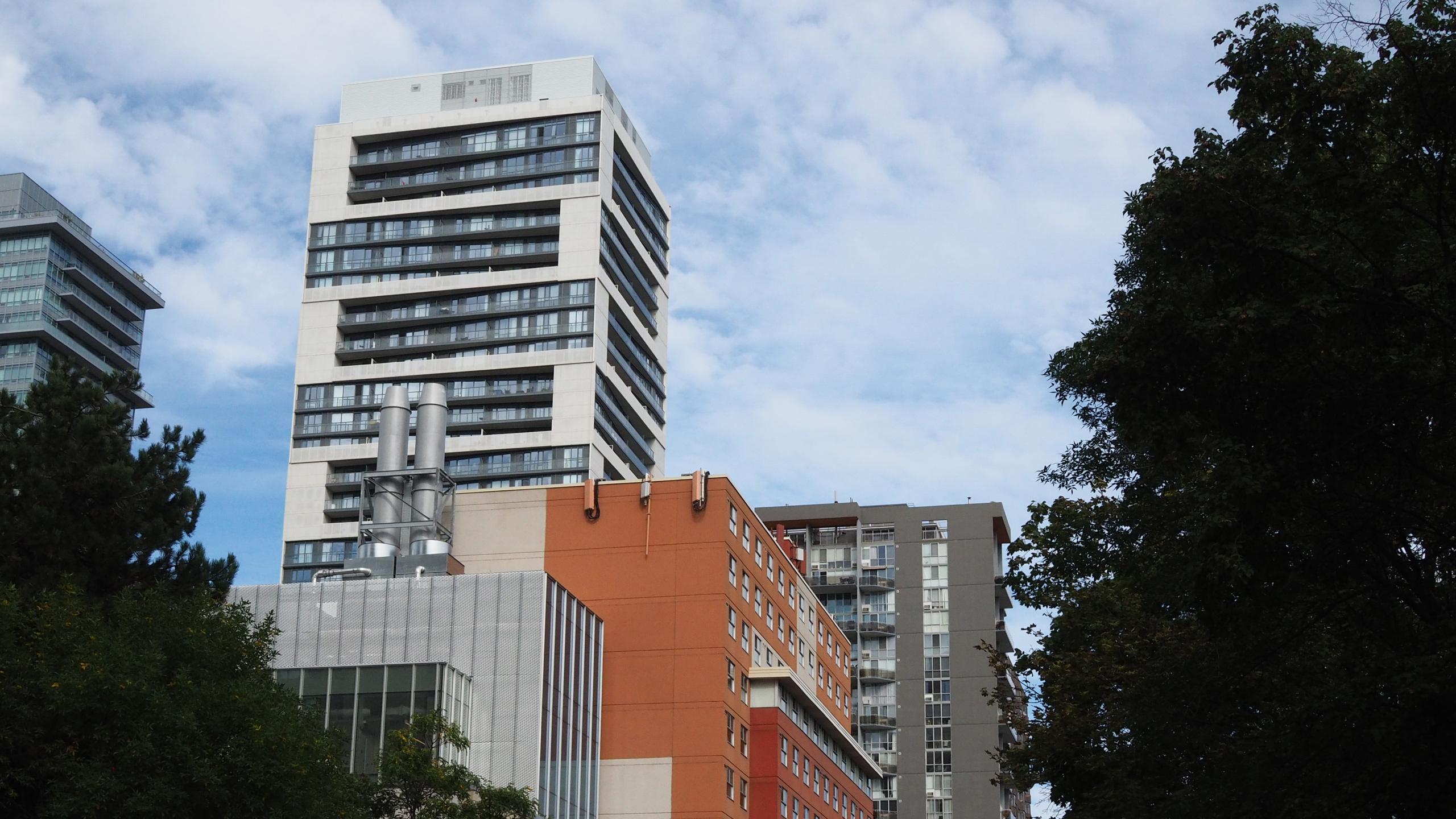By Aditi Roy
Toronto Metropolitan University (TMU) has scrapped its plan to build a new residence space on 202 Jarvis St., which would have created housing for 570 additional students.
These spaces were set to be built on one of the university’s three parking lots. The residence was part of a mixed-use development for the university, where academic, research and retail space would be built as part of a high-rise building.
In an email to The Eyeopener, the school said, “The rising costs of material, labor, and inflation” contributed to the university’s decision to stop moving forward with the project.
While the university is scrapping the construction of new residence spaces, it’s still going ahead with the development of the other planned academic and research spaces.
The efforts to expand housing were a part of the university’s 2019 Campus Master Plan, which aimed to improve campus by furthering accessibility, advancing sustainable development, and building more research centres and housing spaces.
The university also said, “the original cost estimate for the residence tower increased by 75 per cent between August 2020 and March 2022.” TMU did not provide The Eye with specific figures relating to the initial cost or the increased amount related to the scrapped residential space.
“I am not surprised to see that this plan was cancelled,” said David Amborski, a professor at the School of Urban and Regional Planning.
“Not only have prices increased dramatically in terms of market prices for the end product, but the supply cost has also increased exponentially,” he added.
According to the Toronto Star, as of mid-June, 1,000 students were on the residence waitlist. The cancellation of the planned spaces has led to an overwhelming sense of disappointment among TMU students.
Mohammad Aaquib, a second-year economics and management science student, said this plan would have been beneficial, offering students safe and relatively affordable units.
He added that this is especially true given that, “TMU is located in the heart of downtown Toronto which is an incredibly competitive and expensive locality.”
The average market rent in the city of Toronto as of 2022 is $961 monthly for hostel arrangements and $1,225 monthly for bachelor apartments. These figures are likely to increase depending on their proximity to downtown.
While the cancellation of new residences is a setback for some, other students like second-year business and technology management student, Dhiren Kumar, said the prices the university already charges to live on campus don’t provide a viable, affordable housing option either.
TMU offers student housing options in its three residences: Daphne Cockwell Complex (DCC), International Living/Learning Centre (ILC), and Pitman Hall (PIT). The cost of a double room per year in ILC is $8,712.06, and PIT is $7,895.06, excluding the cost of the mandatory meal plan. The cost of a two-bedroom per year in DCC is $13,316.06, excluding meal plan costs. For reference, subscribing to the university’s seven-day meal plan requires you to pay an estimated $25.60 daily.
“I think most students found the existing TMU residences to be very expensive, so I am still not sure if potential new housing would fix those issues,” said Kumar.
Aaquib expressed similar concerns; he believes the current prices are not affordable, especially for international students who already have to account for a large number of expenses.
The average tuition fees of an international student at TMU range from $33,359 to $34,073, as of 2022.
Unable to secure affordable housing within the university’s residences, students are forced to hunt in Toronto’s expensive housing market, experts say.
“The Toronto housing market is very expensive and difficult to enter; I anticipate students will face trouble finding affordable housing near campus,” said Amborski.
Aaquib has house-hunted in Toronto before. “Rent costs are outrageous here; even with all the rent ceiling the government has imposed,” he said.
Ontario’s laws allow rent for residential units to be increased after a 12-month cycle. The rent increase guideline as of 2023 is 2.5 per cent which is a 1.3 per cent increase from 2022’s percentage.
The sole requirement for the landlord is to send a written notice 90 days prior to increasing the rent. These laws also don’t protect tenants of new residential units inhabited as of Nov. 15, 2018.
While it’s not the responsibility of the provincial government to provide funding to build post-secondary residences, MPP Kristyn Wong-Tam still believes the province should step in, especially now with the difficulty of finding affordable housing.
“We can’t increase the campus population without making accommodations for people to have places safe and decent for them to live in,” Wong-Tam said. “The Ministry of Universities and Colleges should be meeting the president of Toronto Metropolitan University to work together to build that type of solution forward.”
Students are calling on the university to help in the difficult process of finding housing as the challenge of finding a place to live increases.
Aaquib said the university should actively look into other methods of providing affordable housing, like leasing properties further away from campus. “Two things matter to students: connectivity and affordability. I would choose traveling fifteen minutes over paying $500 extra a month.”
Aaquib also said it boils down to the university’s motive. “Toronto Metropolitan University has to decide if they want to earn money or if they want to help people.”
Amborski says he believes residents of Toronto can help by providing the best information possible on the housing options available while pushing for the creation of secondary units to house students.
The university said it “will continue to explore more affordable methods to expand residence space near campus and support students,” but did not mention any specifics when asked if they plan on building new residences.













Asha
You have captured the essence of Parental woes with student -children forced to commute incredibly long distances just to scrape to afford housing.
Thank you and hope this brings some attention to the challenge and enables some resolution steps.
Thank you, Aditi Roy.